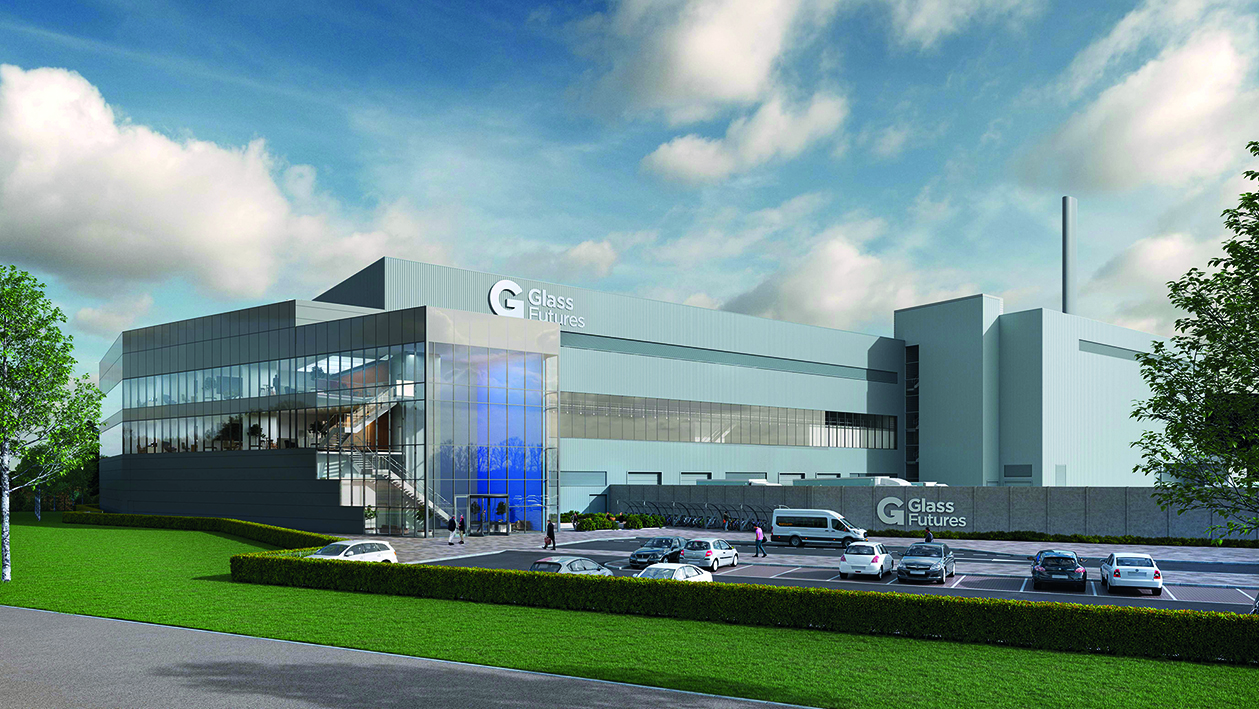In an exclusive supplement produced with Glass International in the run-up to Glasstec, Alex Packer, Sales Engineer at Parkinson-Spencer Refractories, highlighted PSR’s role in the Glass Futures project to design flexible and innovative forehearths at the Global Centre for Excellence for Glass.
PSR designs forehearths for Glass Futures

Having served the glass industry for over 200 years, we have seen periodic transformations within the sector as processes, materials and products have changed beyond recognition.
It is imperative to stay at the forefront of technological advancements as we look to the future of glassmaking. Therefore, it is with great pride that we are collaborating with colleagues at Glass Futures to design flexible and innovative forehearths at the Global Centre of Excellence for Glass, which is the Glass Futures pilot plant under construction in the historic glassmaking town of St Helens.
The not-for-profit research and development facility will feature a 30 tonne per day glass melting furnace as well as raw materials and cold-end processing to support research and development projects with the container, flat glass, fibreglass and tableware industries. Clients will be able to use the plant to bridge the difficult gap between the lab and full-scale manufacturing.
PSR has designed the distributor, colourant alcove, container forehearth and rolled plate forehearth as well as a drain forehearth for the pilot plant.
At the heart of this project is the flexibility to switch seamlessly between research and development initiatives. This has led to the implementation of a number of interesting features.
For example, the forehearths must be able to switch between maximum and minimum tonnage operations on each line. To accommodate this, we have been able to revisit some of our past designs for a forehearth casing jacking system to address the problem of head loss at high pull and low operating temperatures and the unwanted increase in glass depth that occurs if the forehearth casing remains sloped down at low pull and high operating temperatures.
This enables the forehearths to operate efficiently under a wider range of production conditions as necessitated by the vast array of possible projects demanded by clients.
In addition to incorporating some of our past developments into the design, we have implemented elements which are new to PSR, such as the design of a rolled plate forehearth.
A colourant alcove will feed the container line, while the rolled plate line will have its own colourant system.
As with all our forehearths, both lines will be constructed ready for the future installation of a PSR Cord Dispersal Stirrer system in the event that this is required to combat the common cat-scratch cord defect.
As we transition to a low carbon future, more research is needed on alternative combustion methods, such as hydrogen firing, swapping to biogas or oxy-fuel and oxy-hydrogen.
We were able to draw on oxy-fuel combustion technologies which PSR developed in the 1990s, but for which until now there has been little demand, to meet the design requirements of the pilot plant forehearths.
While oxy-fuel forehearths have not gained much market popularity in the past 30 years, we are excited to see renewed interest amid tightening emissions regulations. In view of this, we are looking to design burner blocks with flexible fuel capability, which will enable further development of combustion systems for glass conditioning in the forehearth.
We can take this knowledge forward to future designs of PSR combustion systems to ensure that plants built today will be ready for the fuels of the future.
This project has been an opportunity to demonstrate our expertise and capabilities as a manufacturer of glass conditioning machinery and forehearth refractories.
Designing such a flexible system has not been without its challenges, but we have been presented with an opportunity to envision something which has never been done before and to contribute to the future of our industry, just as we have contributed for the past 222 years.
From the 900 tonne per day furnace, distributor and seven forehearth layout at Encirc Elton, thought to be the largest in the world, to the 30 tonne per day design at the Glass Futures pilot plant, our distributors and forehearths can cover the widest possible range of glass conditioning requirements.
We look forward to working closely with the Glass Futures team as the project is realised. PSR will take a keen interest in the next generation glassmaking trials which will be taking place at the Centre for Excellence in the coming years.
Click here to find out more about PSR forehearths.